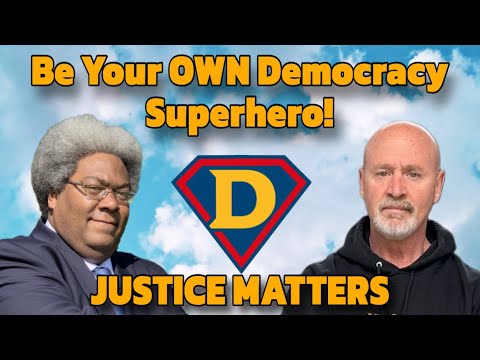In a thought-provoking episode of “Justice Matters One-on-One,” host Glenn Kirschner welcomes legal expert and columnist Ellie Mistal to discuss urgent strategies for combating the perceived autocratic tendencies associated with former President Donald Trump. The spirited dialogue emphasizes the importance of vigilance and active citizenship in the face of rising political extremism in the United States.
The discussion opens with Kirschner expressing his admiration for Mistal’s contributions to political discourse, highlighting his engaging delivery and insightful analysis. Mistal, who has garnered recognition for his wit and ability to articulate complex legal issues, draws from his extensive background in law and journalism to address contemporary challenges facing democracy.
Kirschner and Mistal reflect on the current political landscape, noting that the level of hate and indecency appears to be at an unprecedented zenith. They argue that citizens cannot afford to be complacent when it comes to safeguarding democracy. This urgency encompasses a broad spectrum of issues, from the erosion of civil rights to the undermining of electoral integrity.
One of the primary suggestions proposed during the discussion is the need for ongoing legal support and advocacy aimed at challenging autocratic behaviors and policies. Mistal stresses that individuals must work to hold elected officials accountable through legal avenues, whether that involves campaigning for reform or participating in litigation that contests injustices. The power of organized resistance and grassroots movements is highlighted as a crucial tool in counteracting authoritarian impulses.
Moreover, both speakers underscore the importance of voting as a fundamental civic duty. They encourage citizens not only to participate in electoral processes but to educate themselves and others about the significance of every single vote and the implications of candidates’ platforms. This emphasis on informed voting serves as both a preventative measure against autocracy and a means of empowering the electorate.
Another significant point raised is the necessity of fostering dialogue across political divides. Mistal argues that understanding opposing viewpoints can create opportunities for compromise and collaboration, which are essential for a functioning democracy. By engaging in meaningful discussions, individuals may help diminish the polarization that characterizes current political debates, paving the way for a more unified approach to governance.
Throughout the conversation, a recurring theme is the role of community activism. Both Kirschner and Mistal advocate for individuals to become involved in local community organizations, emphasizing that collective efforts can yield significant change. Whether it’s volunteering for campaigns, participating in town halls, or joining advocacy groups, the message is clear: active involvement at the community level is critical to preventing the rise of authoritarianism.
The episode culminates in a call to action for citizens to remain vigilant and proactive. Mistal’s passion for justice and accountability shines through as he encourages viewers to challenge norms and fight against the tide of autocracy that threatens democratic institutions. His depth of knowledge, paired with Kirschner’s engaging style, creates a compelling narrative that inspires hope and action.
In summary, the dialogue between Kirschner and Mistal serves as both a sobering reminder of the political challenges at hand and a beacon of optimism for those willing to engage in the fight for democracy. Their conversation emphasizes that the struggle against autocracy is an ongoing endeavor—one that requires steadfast commitment and a unified front from all who value liberty and justice.



